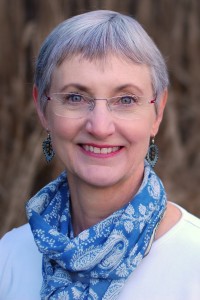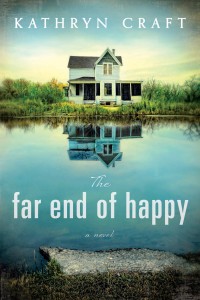Healing Through Writing
 Imagine you are a woman with 8- and 10-year-old sons who is losing her husband to alcohol. He has refused all help and the financial betrayals must come to an end. You finally worked up the nerve to divorce him and today is the day he has promised to move out—but instead he shows up at the house drunk and armed, something you don’t realize until after your younger son has raced from the house to greet him.
Imagine you are a woman with 8- and 10-year-old sons who is losing her husband to alcohol. He has refused all help and the financial betrayals must come to an end. You finally worked up the nerve to divorce him and today is the day he has promised to move out—but instead he shows up at the house drunk and armed, something you don’t realize until after your younger son has raced from the house to greet him.
In 1997, this was my reality. Writing became the source of my healing.
Story is powerful medicine.
I already knew a bit about why this might be true. At the time I’d already been serving for fifteen years as a dance critic for the Allentown-Bethlehem-Easton area of Pennsylvania. After each performance I had about forty minutes to assemble its myriad details into a cogent and concise review. Without fail, a story would emerge. Thank goodness, because 11 pm was the witching hour and I would have to hit send, ready or not.
Why did this work? Because despite the disparity of elements in any one performance, they always had one thing in common: I was the one perceiving them. Perception, also known as point-of-view, lends powerful cohesion to our writing.
The key was getting the words out of my head and onto the page. Words on the page are like a puzzle to the creative mind, which seeks patterns that allow us to create a relationship with the material. The puzzle posed by my husband’s suicide, of course, was more challenging. I had to create a relationship with shocking events that I could not undo. Examine the full scope of a marriage. Own my role in its failure. Seek previously unseen clues to my husband’s despair. I had no deadline, yet my responsibilities alone suggested urgent stakes: I needed to care for my sons; the home, animals, and property that comprised our small farm; and the home-based business that would support us. My healing was imperative.
As soon as I could, I honored my trusted and time-honored process of applying words to the pages of my journals. My thoughts were fragmented, the emotions raw. But feelings and memories ripping me up on the inside were now outside, on the page, where they could be manipulated.
A few years later I began that process, fashioning manageable chunks of my marriage into small arcs—arcs whose very structure was healing, considering each had a beginning, middle, and most importantly, an end. The horror would not go on and on. It could be contained. Examined and put away.
 I gobbled up lessons about how and why storytelling works like a drowning woman learning to swim. My early attempts to write were marred, however, by powerful anger toward my husband. Not for what he did to me, so much—I was going to leave him, and had to live with the consequences—but for what he did to our sons. In order to forgive him, I needed to find something that remained elusive: empathy for his despair.
I gobbled up lessons about how and why storytelling works like a drowning woman learning to swim. My early attempts to write were marred, however, by powerful anger toward my husband. Not for what he did to me, so much—I was going to leave him, and had to live with the consequences—but for what he did to our sons. In order to forgive him, I needed to find something that remained elusive: empathy for his despair.
The big question was how. I am a natural optimist. A woman, not a man, and fourteen years younger. I didn’t struggle with addiction. It was so hard to relate.
So I created a twenty-eight-year-old woman waging a war against her body and put her in a world I knew well: the world of dance, where harsh expectations of a woman’s body exact a toll. I took away her support system: her mentor, her supportive yet obese mother, and the only choreographer who ever believed in her—and with him, her lover and dream career. Might this push a woman to the point of despair? And if it did, might her first friends outside the dance world be able to lend much-needed perspective? I decided to write that story and see. It became my debut novel, The Art of Falling.
By the time I wrote my second novel, sixteen years had passed since the suicide and I was ready to tackle the impact it had made on our lives. Setting the story on the bones of the twelve-hour standoff, The Far End of Happy became more than memoir: it allowed me to enter the perspectives of the three women closest to the despondent man as they made tough decisions, faced shameful secrets, and tried to sustain hope while awaiting word. While employing storytelling tools that encouraged me to seek backstory motivation and build characterization and analyze conflicting scene goals, events that had at first seemed like chaos took on the complex layers of meaning that only a fully realized story could unearth.
Sharing the tragedy would not be enough to satisfy. I worked on each of my stories until they ended on a note of hope.
Because while I know writing is healing, I also know that hope is what we need to cling to life when times get rough. The stories I write may be dark, because let’s face it—times do get rough. And in the moment, life can seem random and chaotic. Even horrific. But the horror need not triumph. We can write a different ending.
And we can live a better story.
—
Kathryn Craft is the author of two novels from Sourcebooks, The Art of Falling and The Far End of Happy. Her work as a freelance developmental editor at Writing-Partner.com follows a nineteen-year career as a dance critic. Long a leader in the southeastern Pennsylvania writing scene, she leads writing workshops and retreats, and is a member of the Tall Poppy Writers. You can connect with Kathryn on Facebook and Twitter.
Category: Contemporary Women Writers, On Writing
Comments (8)
Trackback URL | Comments RSS Feed
Sites That Link to this Post
- Week in Review {Pics + Links} - Kimberly Wilson | November 19, 2016
- Powerful Medicine | The Dream Book Blog | November 6, 2016
- Healing Through Writing | Toni Kennedy : A Writing Life | February 11, 2016































Thank you Kathryn. i am going through a very emotional time writing my first Memoir. Im approaching writing about my violent ex hubby. Any suggestions?
Hi Michelle, first I think you need to adjust your expectation. This should be a very emotional time for you, just as you hope it will be for your reader. But here’s the difference: no one is trying to hurt anyone with the violence on these pages. You will be using it as story pressure to create something meaningful and worth sharing, a story that makes sense with a beginning, middle, and end. While looking back it’s so important to remember that you are revisiting these events for a purpose but you can walk away any time you want since that part of your life has ended. Looking forward, remember that what you are exposing isn’t shameful but profoundly human, and ultimately beautiful –a transformation within you. Hugs to you on your writing journey.
Hi Kathryn, I like how you explored the answers to the usual W’s of your husband’s motivation through another character. No time is ever wasted when we practice our craft. So, waiting for your understanding, waiting for your emotions to be less raw when addressing the re-visioning of what happened to create more than just a report, waiting for the story to mature was time used well. Congrats!
Sharing our truths not only heals ourselves, it helps others. Thank you for sharing.
Great post!